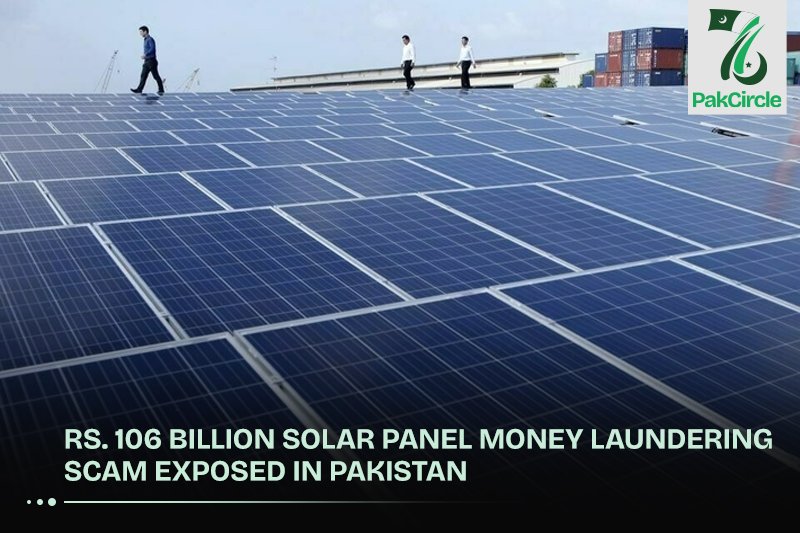A shocking Rs. 106 billion ($375 million) money laundering scam disguised as solar panel imports has been unearthed by the Directorate of Customs Post Clearance Audit (PCA) South, operating under the Federal Board of Revenue (FBR). The scheme, orchestrated by two brothers, Rab Nawaz and Ahmed Nawaz, involved over-invoicing, shell companies, and dual financial transactions to funnel billions of rupees through illicit means.
Investigators revealed that the accused used a network of seven shell companies based in Lahore and Peshawar to inflate solar panel import prices significantly. Panels imported at $0.15 per watt were invoiced at $0.35 to $0.70 per watt, creating a markup of up to 500%. This fraudulent overpricing allowed them to launder money through commercial banking systems and other financial channels.
The shell companies involved in the scam include:
- Messrs Sky Linkers Trading Company, Peshawar
- Messrs Sky Linkers Business Chain Private Limited, Peshawar
- Messrs Bright Star Business Solution Private Limited, Peshawar
- Messrs Moonlight SMC Private Limited, Peshawar
- Messrs Pak Electronics, Lahore
- Messrs Solar Site (Private) Limited, Lahore
- Messrs Royal Zone (Private) Limited, Lahore
Investigators found that the combined valuation of these shell companies was just Rs. 119 million, a figure dwarfed by the billions laundered through their accounts. In one instance, Rs. 42 billion was deposited in cash into commercial bank accounts to mask the illicit origins of the funds. Alarmingly, one unregistered company managed to import solar panels worth Rs. 2.5 billion, with its proprietor reporting an annual income of just Rs. 250,000.
The investigation also uncovered links to Chinese companies, tracing laundered funds to four Chinese entities associated with the same individuals. The perpetrators exploited Pakistan’s duty-free import policy for solar panels, conducting dual financial transactions—one through the informal Hawala/Hundi system and another through official banking channels.
The role of commercial banks has come under scrutiny for failing to detect and report suspicious transactions. Many of the involved companies exhibited questionable financial profiles, yet banks facilitated their activities without raising alarms.
The operation, led by DG PCA Chaudhry Zulfiqar Ali and Director PCA South Sheeraz Ahmed, involved a meticulous investigation. Data from customs, sales tax, income tax, and banking records were cross-referenced to unravel the complex web of financial and import irregularities. This effort has led to the registration of four FIRs against the accused individuals and entities.
This massive scam poses significant economic implications, not only due to the revenue loss but also for undermining duty-free policies meant to encourage renewable energy adoption. The sophistication and scale of the operation have exposed systemic vulnerabilities in Pakistan’s financial and regulatory frameworks.
As investigations continue, the FBR and PCA South are expected to expand their probe to uncover additional entities and individuals involved in similar fraudulent activities. Financial regulators and banks are also under pressure to strengthen monitoring mechanisms to prevent future abuses.
This case highlights the urgent need for stricter anti-money laundering measures and oversight mechanisms to protect Pakistan’s economy from large-scale financial crimes. For updates on this and other developments, visit PakCircle.








